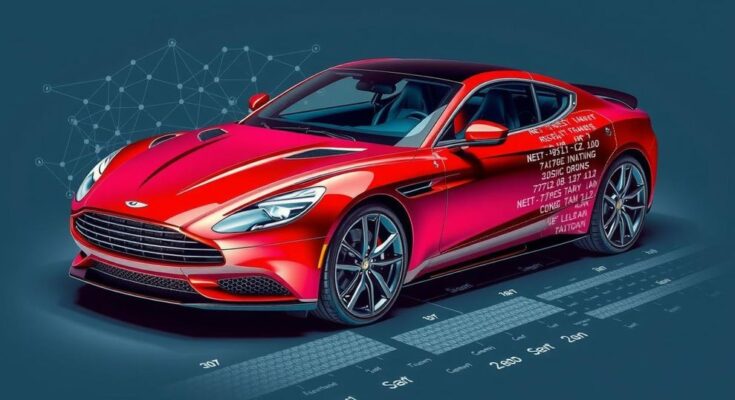General Motors is experiencing a major downturn in China, its formerly lucrative market, with a 19% decrease in sales and significant losses from joint ventures. While GM thrives in North America, it faces intensified competition from local Chinese automakers, particularly in the electric vehicle sector. Experts predict that many Western brands may struggle to maintain operations in China over the next five years due to shifting consumer preferences and regulatory pressures favoring domestic manufacturers.
In a stark reversal, General Motors (GM) is witnessing a significant decline in its operations in China, which was once its most lucrative market. While the company is successfully generating record profits in North America, it faces a profound struggle in China, where sales have dropped by 19% this year, leading to a loss of $347 million on its joint ventures. Recent projections indicate that GM’s net income will diminish by more than $5 billion, partly due to necessary restructuring in China. Experts believe the auto giant’s once-viable operations in this critical market have shifted from being a lifeline to becoming a substantial liability.
This downturn is not isolated to GM; many Western automakers that once thrived in China are now grappling with fierce competition from local brands, which have rapidly evolved to produce desirable electric vehicles (EVs) that cater to consumer preferences. Policymakers in China are actively promoting the transition from traditional gasoline vehicles to EVs, further complicating the landscape for foreign manufacturers. Experts assert that many international brands may find it increasingly difficult to remain operational in China, with some potentially withdrawing from the market altogether within the next five years.
Chinese brands now account for approximately 70% of the automobile market, highlighting a dramatic shift from just five years prior when this figure stood at 38%. This significant change underscores the overarching challenge Western automakers face amidst heightened competition and evolving consumer preferences. GM’s collaboration with Chinese firms, mandated by previous regulatory frameworks, is also at a crossroads, with uncertainty regarding the future of its joint ventures as deadlines loom. As the industry fundamentally pivots towards electric mobility, the question remains whether Western firms can adapt or if they will concede the market to their rivals.
The automotive market in China has experienced a dynamic and rapid transformation over the past few decades. Once regarded as a fertile ground for Western automakers like General Motors, the landscape has shifted dramatically as local manufacturers have surged in prominence. Following the Chinese government’s introduction of policies promoting electric vehicles, combined with changing consumer attitudes favoring homegrown brands, foreign automakers are now contending with a competitive environment that threatens their market share. The acceleration toward EV adoption has intensified the pressure on these companies to respond effectively, as many Western brands struggle to keep pace with their Chinese counterparts’ innovation and pricing strategies.
In summary, the retreat of General Motors from the Chinese market illustrates a significant challenge facing Western automakers amid evolving consumer preferences and intensified local competition. The company’s previous reliance on Chinese profits has been eclipsed by recent losses, prompting necessary restructuring. As the transition to electric vehicles continues to reshape the automotive landscape, foreign manufacturers must navigate a complex environment or risk diminishing their presence in the world’s largest auto market.
Original Source: www.cnn.com




